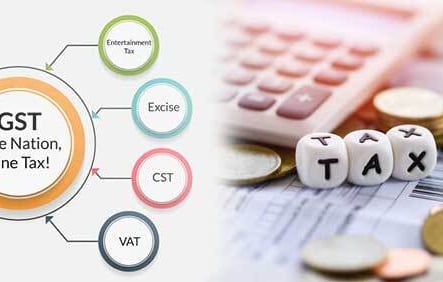
GST Services
Complete GST solution including registration, filing, and compliance management. We help you stay compliant with all GST regulations.
Features
GST Registration
Monthly/Quarterly Filing
Annual Returns
Input Tax Credit
E-way Bill Generation
GST Amendments
Notice Handling
Compliance Management
Why TaxTancy™
Timely Compliance
Error-free Filing
Expert Assistance
Regular Updates
Penalty Prevention
Credit Optimization
Digital Records
Peace of Mind
Our Process
Step 1
Registration
Complete GST registration process with proper documentation.
Step 2
Returns Filing
Regular filing of GST returns and maintaining compliance.
Step 3
Support & Advisory
Ongoing support for queries and compliance requirements.
Pricing
Basic Filing
₹1,999
Monthly/IFF GSTR-1 & 3B
Basic Reconciliation
Email Support
Compliance Calendar
Complete Package
₹3,999
All Basic Features
ITC Management
E-way Bill Support
Dedicated Manager
Priority Support
GST Registration
₹999
GST Registration Application Filing by Legal Expert.
GST ARN Number Delivery in 1 Day.
GST Registration Final Certificate Delivery in 5-7Working Days.
What is GST Registration ?
GST registration, introduced in India in July 2017, is a significant reform that consolidates various indirect taxes, such as VAT and service tax. According to the GST Act, registration becomes mandatory when a business's turnover exceeds 40 lakh rupees in a financial year (or 10 lakh rupees for certain northeastern states, as per the latest amendment effective from April 1, 2019). Additionally, specific businesses, such as e-commerce ventures, are required to obtain GST registration from the outset, regardless of turnover limits. At TaxTancy™, we simplify the GST registration process, ensuring it can be completed online in just 2-3 working days, providing verified GST certification along with login details for easy management. This streamlined process enables businesses to comply with tax regulations efficiently and focus on their growth.
Who is required New GST Registration
In India, several categories of taxpayers are required to obtain new GST registration.
Individuals or companies previously registered under old tax laws such as service tax, VAT, or CST must transition to the new GST framework.
Businesses whose annual turnover exceeds 40 lakh rupees are mandated to register for GST; however, for specific states like those in the North-East, Jammu & Kashmir, Himachal Pradesh, and Uttarakhand, the threshold is set at 10 lakh rupees. Additionally,
Participants in events or exhibitions who lack a permanent place of business can register as casual taxpayers under the GST, ensuring compliance while engaging in temporary business activities. These provisions aim to streamline taxation and promote transparency across sectors in the country.
if you are a non-resident person of India or handling the business of NRI in India then it’s required to apply for the GST Registration Online.
if you are an input tax service distributor then it’s required to apply for the GST Registration to carry forward the benefit of an input tax credit under GST Law.
Benefits
Legal Protection
More Strong as compare to Competitor
Take Input tax credit
Sell in India anywhere
Open a current business bank account
Bid for the Govt Projects
Increase Trust between your customer’s
Penalty for Not Obtaining GST Registration
It is mandatory for certain businesses to obtain GST registration. Violating the regulatory and legal GST norms attack the following penalties:
For Non-Payment or Underpayments: If a taxpayer either neglects to pay the requisite tax or mistakenly underpays, an acceptable equivalent of 10% of the outstanding tax amount is levied. It's important to note that while there are no GST registration fees, penalties for non-compliance can be significant.
Intentional Tax Evasion: If an individual or business willfully avoids paying the due taxes, the penalty equals 100% of the evaded tax amount.
Documents Required For GST Registration
Electricity Bill
Latest electricity bill for the premises where GST registration is applied for.
Telephone Bill
Latest telephone bill for the premises where GST registration is applied for in some states.
Property Tax Receipt
Latest property tax receipt for the premises where GST registration is applied for.
Lease / Rent Agreement
If the property is rented or leased, lease or rental agreement is required.
Passport Size Photo
Passport size photo of the authorised signatory under GST.
Partnership Deed
If applicant is a Partnership Firm, Partnership Deed must be submitted.
Incorporation Certificate
If applicant is a Company or LLP, Partnership Deed must be submitted.
PAN Card
PAN card of the authorised signatory under GST.
Aadhaar Card
Aadhaar card of the authorised signatory under GST.
Legal Ownership Document
If the property is taken by a person without rental agreement.
GST Registration FAQ's
What is a GST certificate in India?
A Goods and Services Tax (GST) certificate is a document issued by the Indian government that certifies that a business is registered with the Goods and Services Tax (GST) system. It is a unique identification number that is used to identify a business for taxation purposes in India.
Who needs GST certificate?
Any business that is registered for GST with the Indian government must have a GST certificate. This applies to both online and offline businesses.
Is GST registration mandatory in India?
Yes, GST registration is mandatory for businesses in India that meet certain criteria set up by the authorities. Some of the criteria defined under the GST framework include an annual turnover threshold, interstate supply of goods and services, and operating an e-commerce platform. However, certain specific categories, such as casual taxable persons and non-resident taxable persons, are also mandated to apply for GST registration, irrespective of their annual turnover.
Is a GST certificate mandatory?
Yes. GST certificate mandatory for businesses in India to obtain a GST certificate to be able to register for GST. It is noteworthy to mention that businesses without a GST certificate will not be able to levy GST on the goods and services they sell.
Is a person without GST registration eligible to levy and collect GST?
No, any person without a legitimate GST registration is neither allowed to levy GST nor collect it from customers. Such persons can’t even claim the input tax credit on the GST paid.
GST Registration Documents Requirements
Below, we have given the GST registration documents to use it as a checklist.
Sole proprietor / Individual
PAN card of the owner
Aadhar card of the owner
Photograph of the owner (in JPEG format, maximum size 100 KB)
Bank account details*
Address proof**
LLP and Partnership Firms
PAN card of all partners (including managing partner and authorized signatory)
Copy of partnership deed
Photograph of all partners and authorised signatories (in JPEG format, maximum size 100 KB)
Address proof of partners (Passport, driving license, Voters identity card, Aadhar card etc.)
Aadhar card of authorised signatory
Proof of appointment of authorized signatory
In the case of LLP, registration certificate / Board resolution of LLP
Bank account details*
Address proof of principal place of business
HUF
PAN card of HUF
PAN card and Aadhar card of Karta
Photograph of the owner (in JPEG format, maximum size 100 KB)
Bank account details
Address proof of principal place of business
Company (Public and Private) (Indian and foreign)
PAN card of the Company
Certificate of incorporation given by Ministry of Corporate Affairs
Memorandum of Association / Articles of Association
PAN card and Aadhar card of authorized signatory. The authorised signatory must be an Indian, even in case of foreign companies/branch registration
PAN card and address proof of all directors of the Company
Photograph of all directors and authorised signatory (in JPEG format, maximum size 100 KB)
Board resolution appointing authorised signatory / Any other proof of appointment of authorised signatory (in JPEG format / PDF format, maximum size 100 KB)
Bank account details
Address proof of principal place of business
GST Registration- An Overview
GST registration, introduced in India in July 2017, is a significant reform that consolidates various indirect taxes, such as VAT and service tax. According to the GST Act, registration becomes mandatory when a business's turnover exceeds 40 lakh rupees in a financial year (or 10 lakh rupees for certain northeastern states, as per the latest amendment effective from April 1, 2019). Additionally, specific businesses, such as e-commerce ventures, are required to obtain GST registration from the outset, regardless of turnover limits. At MyOnlineCA, we simplify the GST registration process, ensuring it can be completed online in just 2-3 working days, providing verified GST certification along with login details for easy management. This streamlined process enables businesses to comply with tax regulations efficiently and focus on their growth.
Book Free Consultation Right Now
What is a GST Registration Certificate?
GST registration certificate is an official document issued by the Government of India to business entities registered under the Goods and Services Tax (GST) framework. GST certificate stands as a testimony to the entity’s legal standing and legitimate registration under GST. However, the certificate further displays critical information, including the GST identification number, business name, and the official address of the business.
The GST Certificate is important for accomplishing tax obligations and crucial in cementing an entity’s credibility and operational legality. Furthermore, the GST registration verification is of utmost importance for any business. It is essential for LLPs, OPCs, private limited companies and public limited companies as well.
Eligibility Criteria for New GST Registration
GST registration is essential for certain businesses and service providers. The eligibility criteria for applying for mandatory new GST registration include the following:
Eligibility Checklist for Filing GST Registration
Businesses having an aggregate annual turnover of more than INR 40 Lakhs must apply for GST registration. However, for any special category state, the threshold amount is INR 20 Lakhs.
All service providers with an aggregate annual turnover of over INR 20 Lakhs must apply for GST registration. However, the limit for any special category states has been set at INR 10 Lakhs.
The business or service provider dealing with goods and services is exempted from the purview of the GST and is not required to fulfill these thresholds.
Businesses previously registered under the old tax structures, such as Excise, Service Tax, VAT, etc., are required to shift to the newer GST structure.
Even if certain individuals and business entities are non-residents and do not reside in India but are involved in taxable dealings within India, they are required to obtain GST registration.
Entities indulged in the business of offering information online, database access, or retrieval services from outside India to any individuals in India, except for the ones who have an existing GST, are also required to obtain a GST registration certificate.
How to Apply for GST Registration Online?
The process of GST registration is now easy and simple. The step-by-step guide to apply for GST registration online are mentioned below-
1.Apply on GST Portal
The applicant must visit the GST portal and provide all the relevant details, such as the legal business name, PAN, email ID, mobile number, district, and state.
2.Authenticate OPT
Once the details are submitted, the applicant receives an OTP on their registered mobile number and email ID.
3.TRN Generated
Once the OTP is verified, the applicant must send the TRN number duly generated via email.
4.Submission for Verification
Next, the applicant needs to submit the details related to the promoters/partners, place of business, business details, authorized signatory, state, Aadhar authentication and verification.
5.Receive ARN Confirmation
Once the applicant saves and continue filing with the form, the ARN confirmation number is generated via SMS.
Are you tired of the complex GST registration process that seems overwhelming and time-consuming? Look no further! At Taxtancy™, our experienced consultants are here to simplify the entire process for you. We understand that navigating the intricacies of GST registration can be a daunting task, which is why we offer tailored solutions to meet your specific needs. With our expert guidance, you can enjoy a hassle-free registration experience, allowing you to focus on what truly matters – growing your business. Contact us today and let our professionals handle the complexities, so you can register with confidence and ease. Say goodbye to stress and hello to a smooth GST registration process with Taxtancy™!


